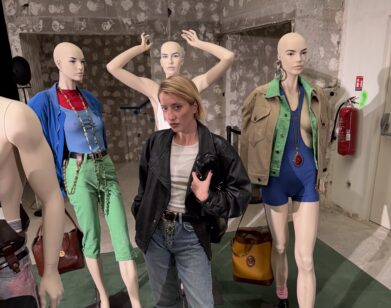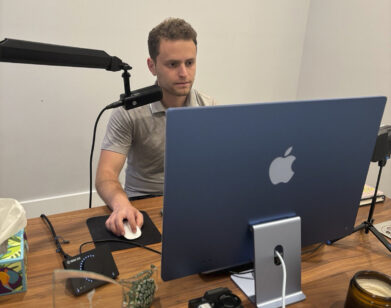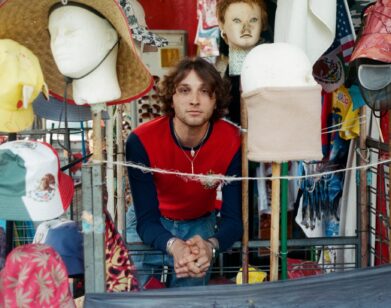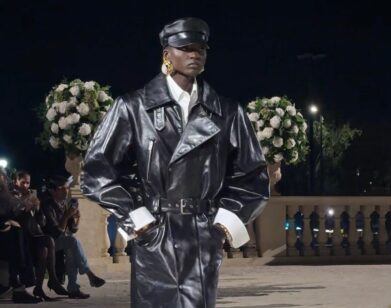Ben Greenman’s Missing Connections
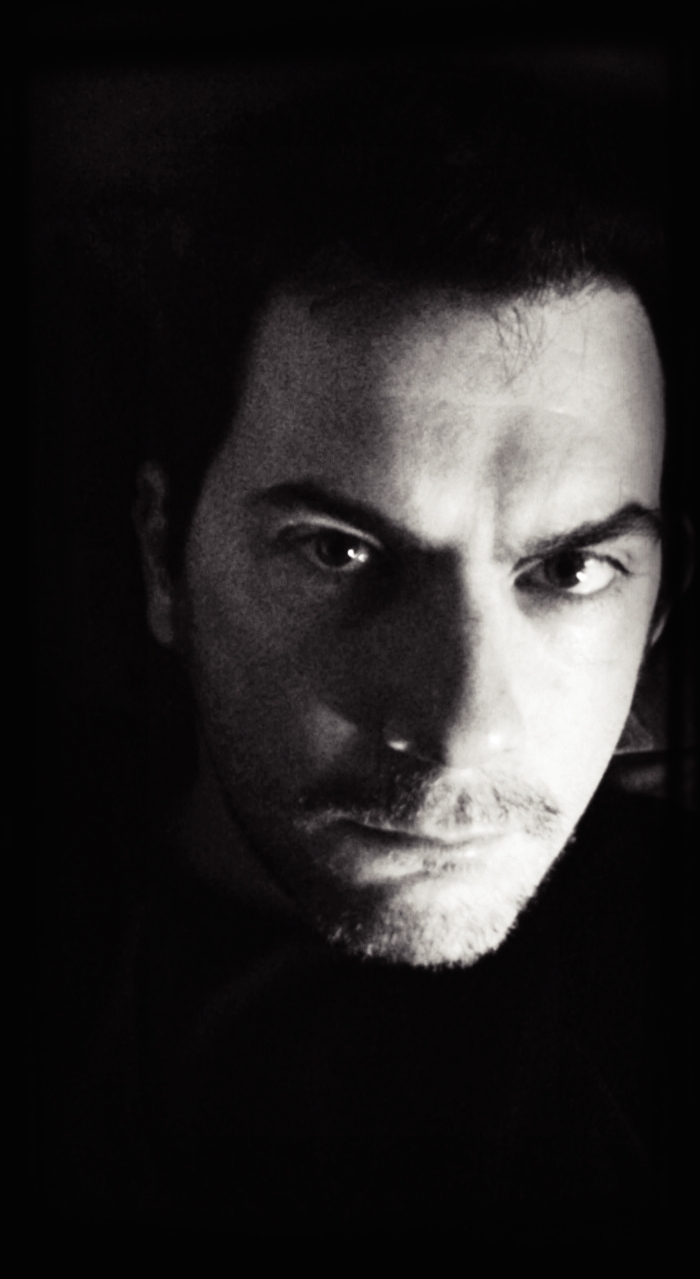
ABOVE: BEN GREENMAN. IMAGE COURTESY OF GAIL GHEZZI
Ben Greenman fascinatingly explores marriage malaise and suburban sadness in his new novel The Slippage (Harper Perennial). William and Louisa Day are a young, childless husband and wife. Against a beautifully boring backdrop of lawn parties and school recitals, business trips and rote routines, Greenman brilliantly teases out the ache and tenacity underneath the everyday grind of the Days and the couples they know. After weeks of increasingly bizarre behavior, which only widens their rift, Louisa issues William an ultimatum—”I want you to build us a house”—forcing William to confront ghosts from his past and his own tangled desires. This is a book about the spaces between us, between what is said and unspoken, loved and lost. Greenman’s suburbs are lush with longing, and he captures solitude with an expert’s strokes. We spoke with Greenman about disconnection in cities versus suburbs, what percentage of our lives is quiet, writing letters, and prescribing ways to change our lives.
ROYAL YOUNG: What happens when young couples move to the suburbs?
BEN GREENMAN: I grew up in the suburbs of Miami, and it was not exciting. As a kid, it creates a lot of space you have to fill. So in my case, I read and observed other people. They find ways of creating significance that aren’t always healthy. The way people think of themselves and identity is different, there’s more time for contemplation so probably less time to actually think.
YOUNG: Do you feel like there’s more disconnection in the suburbs? I know they say New York City is one the loneliest places.
GREENMAN: I think people can carry that with them no matter where they are. But for the people in my book, they’re reasons why it works out that way. They have no children. I think in good or bad ways, there’s a sort of stagnant quality in a lot of what happens. That can be contemplation, if you use it right. Or that can be vacancy and frustration, if you use it wrong. The one thing about the city is that you’re always rescued from yourself by things around you. I wanted to explore disconnection, disaffection, lack of direction, to let those things play out. You see what happens in a conversation when it’s mostly subtext, when they’re talking about taking the garbage out. It’s pretty quiet. I find 90 percent of your life is that. Or I don’t know. You pick the percent, but definitely over 50.
YOUNG: There’s an aching underneath that quiet that is hard to capture.
GREENMAN: I feel like sometimes I get tired of movies, books, records that answer things.
YOUNG: Should that be their job?
GREENMAN: I see why it is. It’s important for people to go to someone who has dedicated months of their life to just understanding and they come out of it with some satisfying conclusion. Good or bad. Closure of character.
YOUNG: There’s a lesson.
GREENMAN: Yes, and it doesn’t have to be a school lesson like “don’t steal” or “be nice to your friends.” It can be abstract. Part of the slowness of this book was my reaction to technology. Things have sped up, in a way, with all our connectedness. Now if you want to reach a friend or relative, you can in 20 seconds. When you correspond by letter, you only have the other person’s letters, unless you’re crazy and keep copies of your own. So you always need the other person, their memory, to complete it. Now it works the opposite, you have everything you vomit out and everything they vomit out all lined up in your inbox. It seems like we’re communicating more and we’re closer.
YOUNG: I feel like I communicate more, but I don’t feel closer to anyone. [laughs]
GREENMAN: [laughs] Right, right! There’s a bunch of people in these book going around doing all the normal things people do to connect. They have dinner together, they share a home, all these things you think should work and yet it doesn’t really make sense.
YOUNG: What’s interesting is that there are so many levels of disconnection. You’re communicating constantly without connecting, going to work everyday and not connecting and then going home and there’s no real connection there either. You’re taking out the trash and feeling weird and awful about it.
GREENMAN: Yeah, and recreating that sense of disconnection and disappointment. And I don’t offer a way out, because there isn’t one. Well, no, there is one, but they don’t choose to take it.
YOUNG: [laughs] So what is the way out? For you? Me? The rest of us?
GREENMAN: I mean, it’s a case-by-case basis. I don’t feel comfortable prescribing.
YOUNG: [laughs] You mean you can’t tell me how to change my life?
GREENMAN: [laughs] It’s actually a combination between looking more in and looking more out. That’s where you have license as a writer or artist to send a message. That’s horseshit. No, but really, identifying that leakage—or, I’ll say, slippage—persistent disconnection, unreality and not keeping your eye on the ball is what I want people to know. Hopefully you’ll get a subtle disorientation, the cap isn’t on tight.
THE SLIPPAGE IS AVAILABLE NOW.

